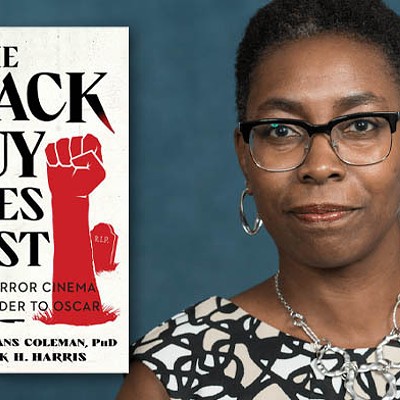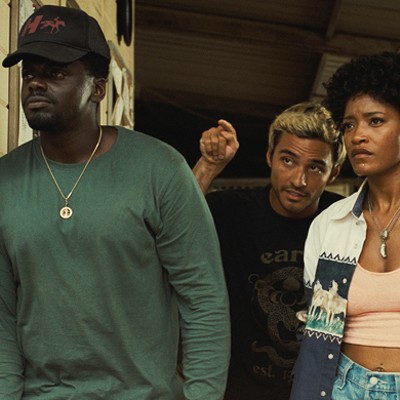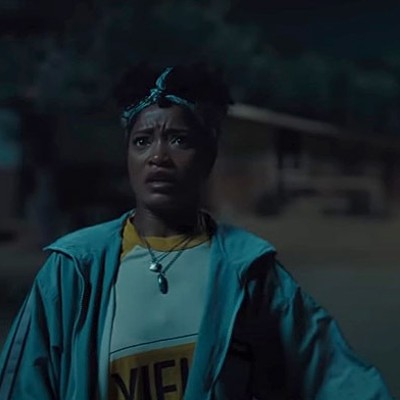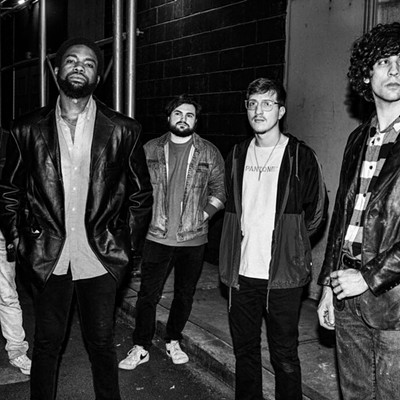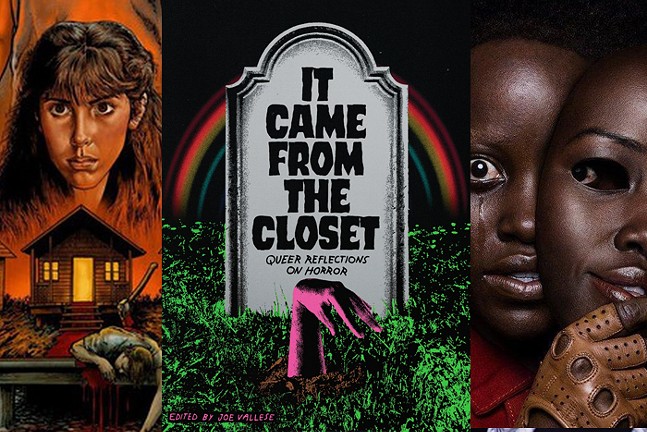
Horror films have a complicated history when it comes to queerness. Queer and trans characters are often pigeonholed as debauched shams or murderous hustlers, their sexual desires inseparable from bloodlust. But is there more to be gained from these movies than their paper-thin characterizations would lead you to believe? Steffan Triplett, contributing writer to the new queer horror essay anthology It Came From the Closet: Queer Reflections on Horror, believes so.
“Regardless of if the film has overt queer or queerphobic themes, in being a queer fan of horror you see something in the narrative or characters that is a point of recognition of being at odds with the world around you,” Triplett tells Pittsburgh City Paper. “We have an affinity for these stories because we’re used to being monster-ized, demonized, made to be the enemy.”
Triplett, who teaches writing at the University of Pittsburgh, and other contributors will read from and discuss It Came From the Closet at Bottlerocket Social Hall on Mon., Oct. 17 in partnership with White Whale Bookstore. The book, published by Feminist Press, features 25 essays from queer and trans writers about the horror movies, such as Jennnifer's Body, Dead Ringers, In My Skin, and The Blob, that speak to their experiences.
Besides Triplett, Sarah Tomasin Fonseca, Zefyr Lisowski, and Grant Sutton will also be in attendance.
This is the second team-up between the Bloomfield bookstore and Allentown bar after hosting authors Sadie Dupuis and Michael DeForge earlier this month. The next collaborative event will be a Halloween Reading and Book Fair on Thu., Oct. 27 showcasing the works of five local authors.
Triplett says he was drawn to the book because of his desire to hear from other queer people who also love horror, despite it not always loving them back.
“We all have an affinity for the genre, even though the genre is often guilty of doing some of these things to us,” Triplett says. “The anthology highlights the different nuances between that relationship.”
In Triplett’s essay, “The Me in the Screen,” he returns to a movie that disappointed him on first viewing: Jordan Peele’s Us. In the movie, Lupita Nyong’o plays two characters: Adelaide Wilson and Red, the leader of a group of menacing doppelgangers. Triplett uses the movie’s idea of a “second you” to reflect on the double lives that he saw within himself — and the shame that sometimes held them apart. In his essay he writes, “in a film where two characters look the same and are played by the same person, it’s always in the back of my mind as a viewer: At what point will one try to be the other?”
“There’s something about the image of a doppelganger that started this line of thinking about my early relationships with sex and sexuality and being afraid of exploring that,” Triplett says. “It became an essay about reckoning with that shame and moving past that.”
The book’s editor, Joe Vallesse, spent his childhood poring over horror movies introduced to him and his siblings by his father. Before he came out as gay, Vallesse says that he was always reading himself into the scary movies he saw, whether it was in the melodramatic villain or sexually-charged male friendships.
Most queer people’s understanding of horror comes from their own experiences, Vallesse says, so he wanted to allow the writers in the book the freedom to tell stories and self-reflect in their essays.
"If I want to hear what other queer horror fans are seeing in the genre, that personal experience is so instrumental,” Vallesse says. “I wanted to think about personal experience as evidence.”
In the book’s other essays, writers examine movies with unexpected queer followings. Viet Dinh’s “Notes on Sleepaway Camp” builds off Susan Sontag’s famous essay “Notes on Camp” to explore the movie’s notoriously transphobic ending. Despite its problematic representations, the 1983 slasher film, which follows a quiet, bullied camper, has found a cult following in the queer community, Vallesse says.
“Camp is the operative word. It is a badly-acted, brightly-colored, men in short shorts and tight shirts, bitchy female campers and counselors, crazy exploitation film,” Vallesse says. “It goes so far over the edge that it kind of loops back to being an important queer artifact.
When Vallesse talks about his infatuation with horror movies as a kid, he describes it like a step in the dark — you’re not sure where it will lead you, but like the stereotypical hapless teen who must follow the eerie sound into the basement, you can’t turn away.
“I felt drawn to it,” Vallesse says. “Even when it scared me, in fact, the more it scared me the more enticed I was to take a step forward and see what else was there. I think it’s common for a lot of queer people — before they even know it.”
Bottlerocket Social Hall Reading & Conversation: It Came from the Closet: Queer Reflections on Horror. 7 p.m. Mon., Oct. 17. 1226 Arlington Ave., Allentown. $5-28. whitewhalebookstore.com/events



